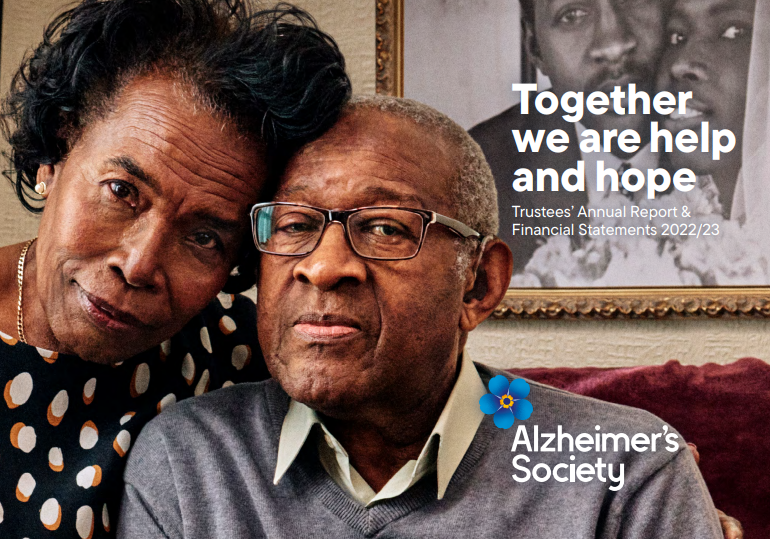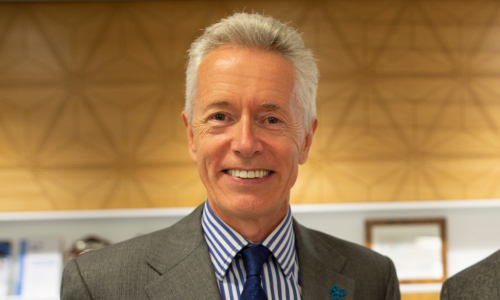
“Due to your efforts, we’ve managed to build even further on our position as the UK’s largest charity giving a voice to those living with dementia.”
- Stephen Hill OBE, Chair of Trustees
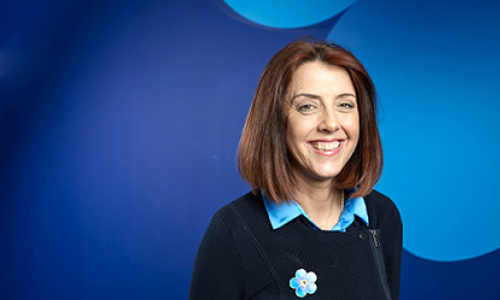
“2022/23 has given us the confidence and resolve to go forward, faster, bigger and better in order the make dementia the priority it needs to be across the three nations.”
- Kate Lee, Chief Executive
Our year in numbers
£0+
Our total fundraising income, making 2022/23 our second most successful fundraising year.
0 calls
The number of people reached directly through our services, nearly a 6% growth from 2021/22.
0+
Dementia Talking Point, our online community, received 1.3 million visits in 2022.
£0+
Invested in dementia research throughout 2022/23.
0 grants
Early career researchers we have supported throughout 2022/23 with 25 different grants.
0+
The number of times our Dementia Directory was accessed in 2022/23 to give people living with dementia vital information.
Income: In 2022/23 we earned £118.1 million.
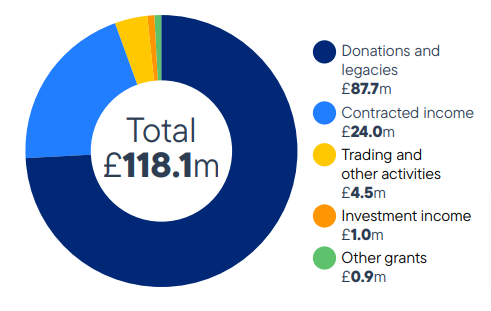
Donations and legacies £87.7 million
- Legacies £39.3 million
- Individual Giving £15.2 million
- Corporate £1.9 million
- Philanthropy £6.0 million
- Community Fundraising £25.3 million
Other grants £0.9 million
Income from grants includes grants issued by the Government, public bodies, and other parties for specific purposes.
Contracted income £24.0 million
Income from our contracts with local authorities to deliver dementia support services.
Trading and other activities £4.5 million
This includes sales from our online shop, Christmas cards, entries into events and raffles, licensing fees and royalties.
Investment income £1.0 million
Income earned from our investment portfolio such as dividends from shareholdings.
Expenditure: In 2022/23 we spent £121.3 million.
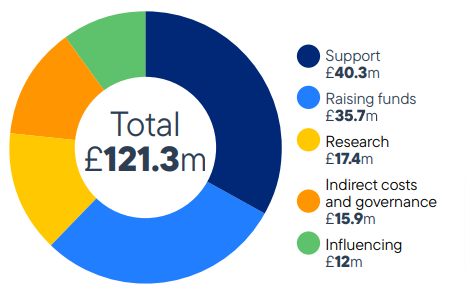
Support £40.3 million
Activities to support people affected by dementia by delivering services and working with the health and social care system to improve dementia care. This includes the costs of services we run such as our Dementia Support Line and the costs incurred delivering our contracts with local authorities.
Influencing £12.0 million
Activities to influence the health and care agenda to highlight the inequalities faced by people affected by dementia in everyday living, particularly the inequalities faced by many in the healthcare system.
Research £17.4 million
Activities to support dementia research and make sure people affected by dementia are at the forefront of this research. This includes a portfolio of active research projects, our contributions to the UK Dementia Research Institute (UK DRI), and our innovation programme – a way to develop and deliver solutions to the challenges of people affected by dementia quickly and effectively.
Raising funds £35.7 million
These are the costs of our fundraising team and the activities they undertake such as running events, design and materials for promotional materials, our dedicated customer care service, and the services of our marketing and media partners who help to promote our fundraising activities to our supporters.
Indirect costs and governance £15.9 million
These are the costs of running the Society including the pay costs of support staff in human resources, finance and corporate resources teams, estates costs, IT and technology running costs, and costs of the governance of the organisation such as audit and other professional fees. These costs are allocated to the above categories in Note 3 of our accounts.
Our Help and Hope Strategy (2022-27).
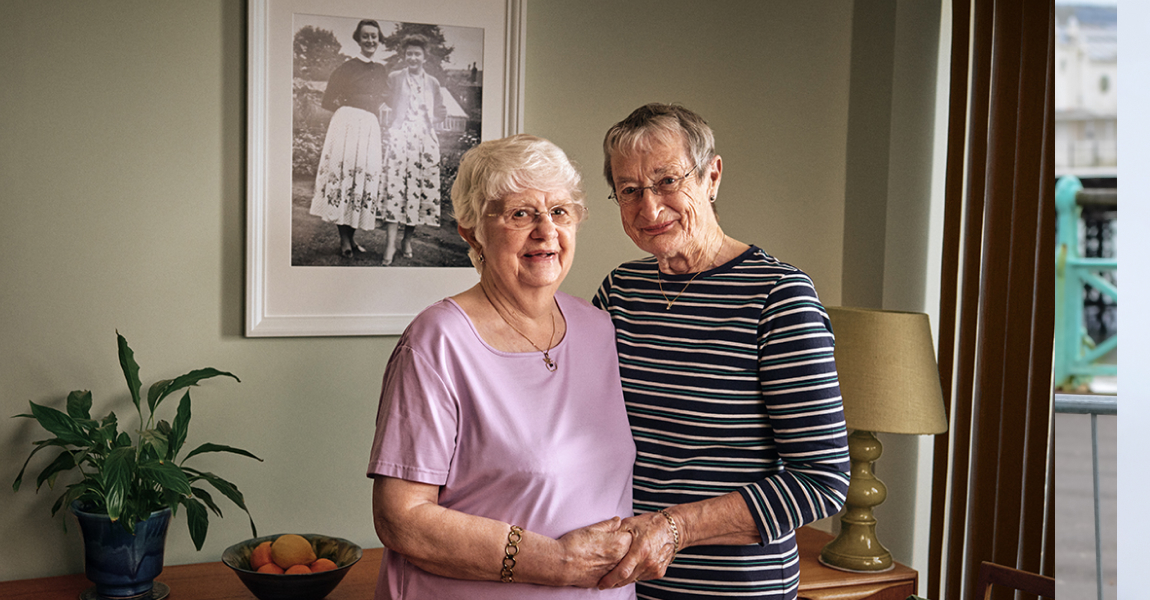
One in three people born in the UK today will develop dementia in their lifetime. Our Help and Hope Strategy will help us to:
- Grow our reach including improving how our services are delivered in the years ahead and ensuring our digital services can reach as many people as possible.
- Work towards early diagnosis by helping people get an accurate and timely dementia diagnosis and access to the right support.
- Increase our impact by deepening our understanding of what makes the biggest difference to people living with dementia and making sure we’re reaching underserved communities.



